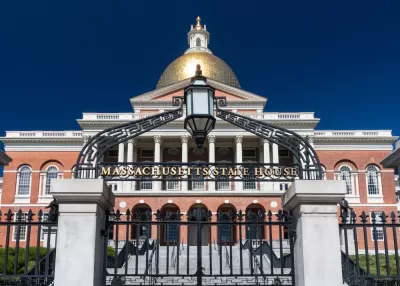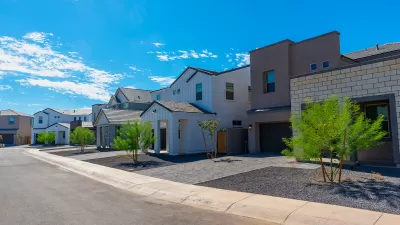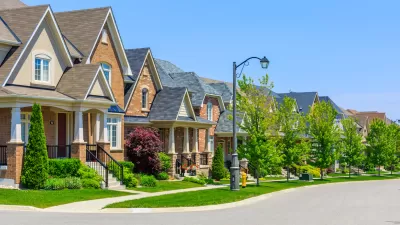Massachusetts is one of the states in the nation requiring local governments to make more space for multi-family housing. Not all local governments are willing to comply, however.

There are new penalties in Massachusetts failing to adhere to the MBTA Communities law, a statewide mandate for zoning that allows multi-family housing development by-right near transit stations.
“Municipalities that do not follow the MBTA Communities law […] will no longer be eligible for a new list of state funding opportunities until they are in compliance,” reports Tréa Lavery for Mass Live.
“The law was adopted in 2021 and requires cities and towns served by the transit agency have at least one zoning district “of reasonable size” where multi-family housing is allowed within a half-mile of a commuter rail, subway or bus station or ferry terminal, if applicable,” adds Lavery.
“Earlier this month, the town of Holden was sued by the Central Massachusetts Housing Alliance for saying it would not follow the law,” according to Lavery.
The news reflects a trend visible in other states, perhaps most notably in California, where state preemption of local control of zoning codes still requires stiff penalties to get local governments working on zoning reform.
More details on the penalties attached to the MBTA Communities law are found in the source article below. Lavery also reports that the state has awarded $2 million to fund technical assistance to communities working to comply with the law.
FULL STORY: Mass. adds new penalties for towns not following MBTA Communities zoning law

Trump Administration Could Effectively End Housing Voucher Program
Federal officials are eyeing major cuts to the Section 8 program that helps millions of low-income households pay rent.

Planetizen Federal Action Tracker
A weekly monitor of how Trump’s orders and actions are impacting planners and planning in America.

Ken Jennings Launches Transit Web Series
The Jeopardy champ wants you to ride public transit.

California Invests Additional $5M in Electric School Buses
The state wants to electrify all of its school bus fleets by 2035.

Austin Launches $2M Homelessness Prevention Fund
A new grant program from the city’s Homeless Strategy Office will fund rental assistance and supportive services.

Alabama School Forestry Initiative Brings Trees to Schoolyards
Trees can improve physical and mental health for students and commnity members.
Urban Design for Planners 1: Software Tools
This six-course series explores essential urban design concepts using open source software and equips planners with the tools they need to participate fully in the urban design process.
Planning for Universal Design
Learn the tools for implementing Universal Design in planning regulations.
Ada County Highway District
Clanton & Associates, Inc.
Jessamine County Fiscal Court
Institute for Housing and Urban Development Studies (IHS)
City of Grandview
Harvard GSD Executive Education
Toledo-Lucas County Plan Commissions
Salt Lake City
NYU Wagner Graduate School of Public Service





























